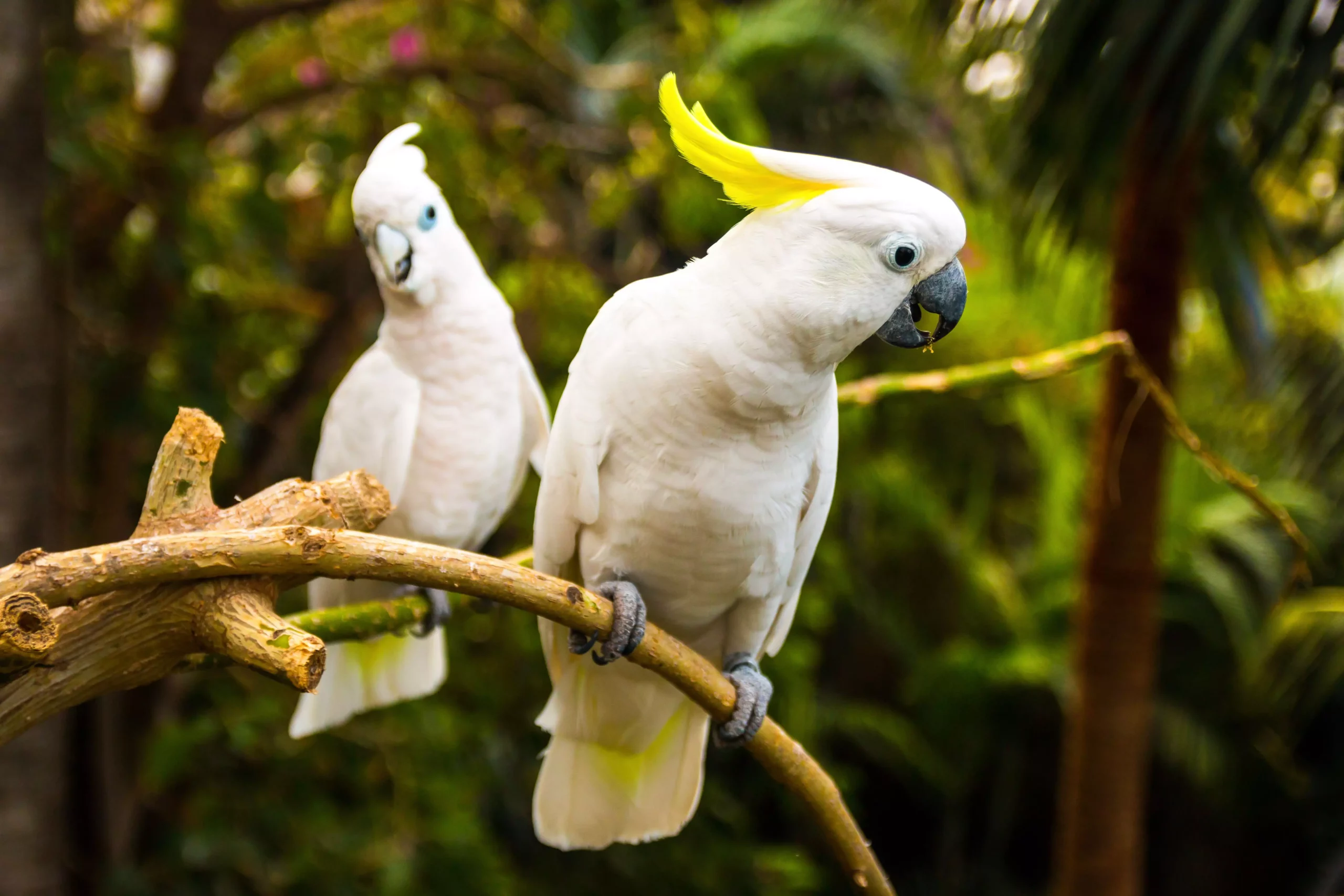Cockatoos are some of the most captivating and sociable birds you can encounter. With their remarkable ability to mimic human speech and their inherently affectionate nature, they quickly become beloved companions. However, owning a cockatoo is a long-term commitment, as these intelligent creatures can live for decades. This article will delve into the fascinating world of cockatoos, examining their characteristics, care needs, and unique traits.
There are approximately 21 different species of cockatoos, each with its own distinct personality and physical traits. Some of the most commonly found in captivity include the Moluccan, Goffin’s, and the sulfur-crested cockatoos. Cockatoos are identifiable by their characteristic crest of feathers, which can be raised or lowered depending on their mood.
The cockatoo family is primarily categorized into two main subfamilies: the white cockatoos, representing species in the genus Cacatua, and the dark cockatoos, classified under Calyptorhynchus. There are a few exceptions, such as cockatiels, which are the smallest members of the cockatoo family. The diversity of these species reflects the rich ecosystems in regions like Australia, Oceania, and Southeast Asia where they thrive.
Affectionately dubbed “Velcro birds,” cockatoos are known for their strong bonds with their human companions. They thrive on interaction and often follow their owners around, seeking attention and play. However, this intense need for companionship can lead to challenges. When deprived of social interaction, cockatoos may develop anxiety, engage in destructive behaviors, or resort to self-harm.
Cockatoos are highly intelligent and require mental stimulation to keep them engaged. They demonstrate a playful and mischievous side, and their loud vocalizations can either entertain or frustrate their owners, depending on the context. Parents considering a cockatoo as a pet should be cautious when introducing them to young children, as their strong beaks can accidentally cause injury.
Although cockatoos are not the most proficient speakers among parrots, they possess an impressive ability to mimic sounds, including human speech. The extent of their vocabulary often correlates with the training they receive and the species in question. Species like the galah and sulfur-crested cockatoo are recognized as some of the best talkers, but owners must be prepared for the potential pitfalls of a vocal bird.
Training a cockatoo to talk involves patience and repetition. Owners should create a consistent environment where their birds can learn and practice words. In addition, cockatoos have a tendency to scream to grab attention when they feel neglected, so providing entertainment through toys and social interaction is crucial in mitigating excessive vocalizations.
Providing a proper living environment is essential for the health and happiness of cockatoos. Their cages should be sturdy—constructed from materials like wrought iron or stainless steel—to withstand their strong beaks. The size of the cage plays a critical role in their well-being; larger species require more space to move around.
A suitable cage for smaller cockatoos might measure a minimum of 24 by 36 by 48 inches, while larger cockatoos benefit from enclosures of at least 24 by 48 by 48 inches. Also, consider installing horizontally spaced bars within the cage to allow for climbing and exercise, as cockatoos are naturally active birds.
The diet of a cockatoo should be balanced and nutritious. In their natural habitats, cockatoos consume various seeds and nuts, but owners must be cautious about incorporating seeds into their diet, as they are typically high in fat. Instead, cockatoos should primarily be fed high-quality avian pellets, supplemented with fresh fruits, vegetables, and occasional nuts as treats.
Monitoring feeding habits is vital to ensure they receive adequate nutrition. Watching how much food they consume and what they discard can guide owners regarding portion sizes. Additionally, maintaining a feeding schedule that mimics their natural foraging habits can help ensure their nutritional needs are met.
Cockatoos, like all pets, can face health issues, especially if not provided with adequate attention. Common ailments include neurotic behaviors, reproductive complications, and obesity linked to improper diet and lack of exercise. Regular check-ups with an avian veterinarian will help catch any potential health concerns early while providing owners with vital information about their bird’s well-being.
Moreover, maintaining a clean living environment is paramount. Known for their feather dust, cockatoos may aggravate allergies in sensitive individuals. Regular bathing and air filtration can alleviate these issues, promoting a healthier home environment.
Owning a cockatoo can bring immense joy and companionship, but it also demands a significant time and emotional investment. Their unique characteristics, from affectionate behavior to vocal tendencies, create a lively atmosphere that can enhance any home. However, potential owners should carefully assess their capacity to meet the needs of these remarkable birds to ensure a harmonious, long-term relationship. Cockatoos can be both nurturing companions and energetic friends, making them a delightful addition to any avian enthusiast’s family.

